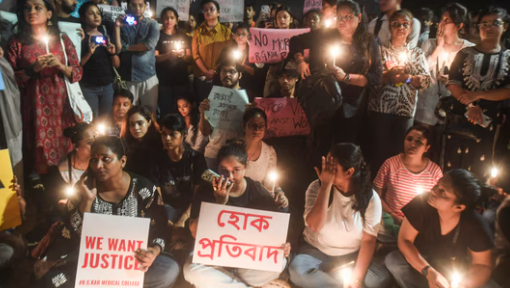The brutal rape and murder of a young doctor in Kolkata have ignited widespread outrage and protests across West Bengal. In response to this heinous crime, women across the state have united under the banner of ‘Reclaim the Night,’ a movement aimed at asserting their right to safety and freedom in public spaces.
The ‘Reclaim the Night’ movement, originally known as ‘Take Back the Night,’ began in the 1970s as a response to violence against women, particularly sexual violence. In Bengal, this movement has taken on new urgency following the recent attack, as women gather to demand that they should not have to fear walking the streets at night. The protests are not just about this one tragic incident but are also a broader call for systemic changes to protect women from violence and harassment.
Across Kolkata and other cities in West Bengal, women from all walks of life are participating in these nighttime marches, carrying candles, and placards, and chanting slogans that call for justice and the right to move freely without fear. The symbolic act of reclaiming the night serves as a powerful statement against the culture of victim-blaming and the pervasive notion that women are responsible for ensuring their own safety by avoiding public spaces after dark.
Prominent activists and organizations have voiced their support for the movement, urging the government to implement stronger measures to prevent gender-based violence and to ensure that perpetrators are held accountable. The incident has also sparked conversations around the need for better law enforcement, public awareness campaigns, and educational programs that challenge the deep-rooted patriarchal norms that often perpetuate violence against women.
The ‘Reclaim the Night’ protests are a reminder that the fight against gender violence is far from over. As women in Bengal and beyond stand together in solidarity, their message is clear: the night belongs to everyone, and no one should have to live in fear.








 India
India












